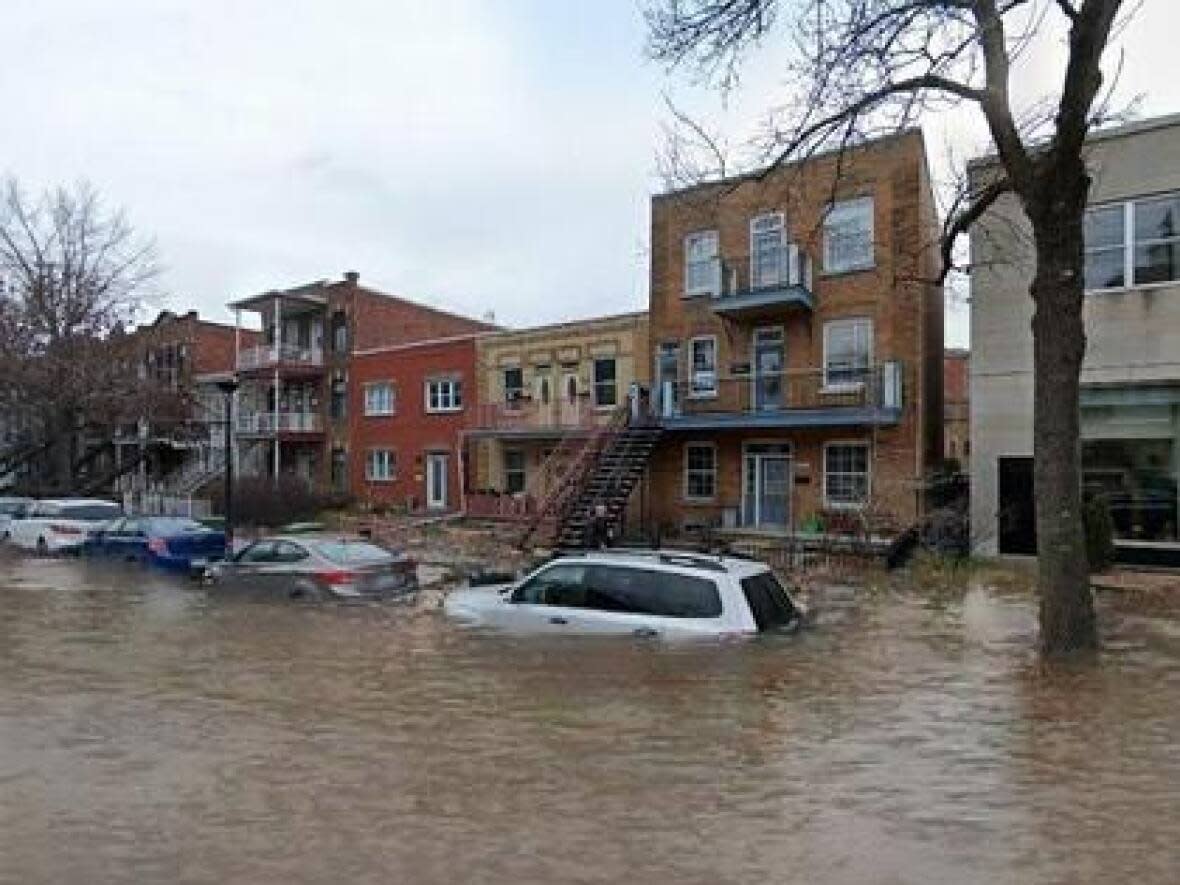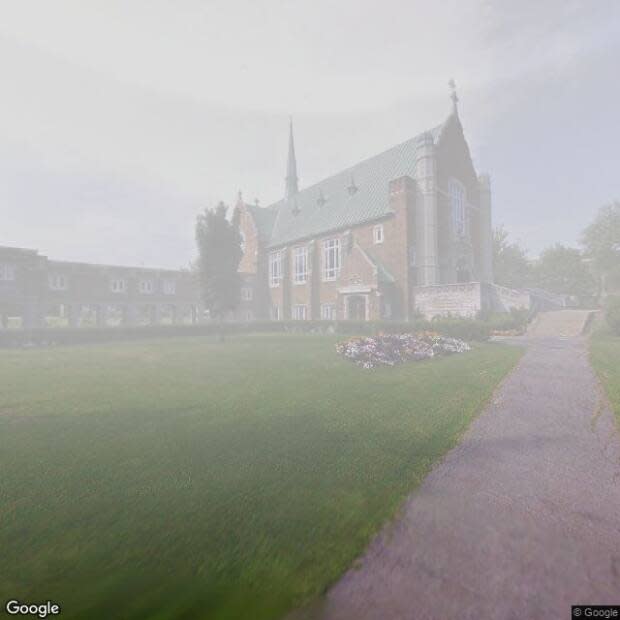This Montreal-made website uses AI to show the potential impact of climate change on any address

Have you ever wondered what your home could look like in a flood? How about your favourite restaurant blanketed in thick smog or Montreal's beloved Bell Centre backdropped by orange skies?
These sights can all be generated on a website launched Thursday that uses artificial intelligence (AI) to simulate what almost any place on Earth would look like under different catastrophic scenarios caused by climate change.
The website, thisclimatedoesnotexist.com, applies realistic filters depicting flooding, wildfires or smog at any address available through Google Street View. It's intended to raise awareness in users about future scenarios if the world's response to climate change continues to fall short.
Yoshua Bengio, scientific director and founder of Montreal's AI institute Mila, which created the site, says the project is not a climate modelling projection. Rather, it's intended to boost people's empathy — and subsequently, their action — by making the impacts of climate change more personal to them.

"If I tell you about something really bad happening far from you and I tell it to you with graphs and equations... it doesn't touch you very much and it doesn't become a priority for you," he said.
The AI expert and professor at Université de Montréal says he came up with the concept for the site when he noticed society had all the tools to combat climate change, yet no one was acting.
"Most people understand that there is an issue, but they have more pressing things in their lives," he said.
Studies show that people take climate change more seriously when they are shown images rather than text. If the images are about people's homes, or something they can relate to, they take it even more seriously, said Bengio.

He says for the planet to tackle the climate crisis, everyone must act as though their homes were directly affected by it.
The project is a culmination of two years of work and a collaboration between researchers in AI, as well as experts in human behaviour and environmental sciences.
The site uses a class of algorithms called generative adversarial networks, or GANs, which generate the highly realistic images.
Built with technological contributions from the National Geographic Society, Microsoft, BCG Gamma and Borealis AI, the site strives to put people in the shoes of those suffering from the impacts of climate change right now, like people in British Columbia, and highlight what can be done about it.

"If we only showed something depressing to people, it wouldn't be so great," said Bengio.
An important part of the website, he said, is telling people how they can transform the negative energy elicited from the pictures into positive action.
"The the most important action is collective because the change is going to come mostly from the government," he said.
But changing personal habits such as the way you eat, commute, the kind of energy source used in your house, are impactful steps. Writing to representatives and participating in climate change events and marches are also helpful, Bengio said.
"We hope this [project] will motivate people to take action to prevent the worst-case scenarios from coming true."


